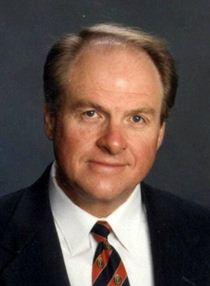***Special thanks to Rick Roberson of The B&B Media Group, Inc. for sending me a review copy.***
Award winning journalist and former White House aide during the Nixon administration, Wallace Henleyhas traveled the world as a speaker and writer, authored more than a dozen books, served as a congressional chief of staff and leadership consultant, and has worked in over 20 countries, all the while gaining a keener grasp of scripture and a deeper understanding of human nature. Today, as he has for the past 11 years, Henley serves as pastor in the 59,000-member Second Baptist Church of Houston, led by Ed Young. He is also a regular columnist for Christian Post. When not traveling, he and his wife of over 50 years, Irene, divide their time between their home in the Houston area and their small ranch outside of Brenham. The couple has a grown son and daughter and eight grandchildren.
2011 was a year of disturbance. Tunisia erupted in violence in January, after a street vendor set himself on fire, and unrest spread across the Middle East in a wave of toppled dictators and violent revolutionaries. March saw tsunamis sweep across Japan, leaving a nation teetering on the edge of nuclear catastrophe. Rioters stormed through the streets of London in August, burning cars and looting stores. Vicious partisan attacks left the American government deadlocked as unemployment stayed high, families desperately tried to find work, and disillusioned protestors occupied public parks from New York to Oakland.
The very underpinnings of the world, the tectonic plates of existence, seem to be shifting and sliding under the feet of every person, and in this time of crisis, author Wallace Henley provides a blueprint for surviving the changes in his new book Globequake: Living in the Unshakeable Kingdom While the World Falls Apart. Henley argues that we are seeing a shift taking place in what he calls the “six core spheres of society” – Person, Church, Family, Education, Government, and Business. In Globequake, he extensively and exhaustively details the transformations crossing all parts of daily life, but the book is more than a list of the changes in the world, it is ultimately a focus on the change that people can have in their hearts.
This is a very well researched book. This makes it an even more valuable book.
While the globe is shaking up around us, we can learn more about the reality of the unshakeable kingdom. We can and must put it to work in our everyday lives, and expand the message within our spheres.
We need to follow the advice of an old song. “Turn your eyes upon Jesus.” Look to the Lord and remember who’s in charge.
Mr. Henley teaches that we need to utilize the four elements of a solid strategic plan to anchor ourselves while enduring the turbulence of the Globequake.
Let Mr. Henley help you survive all this shaking. He knows what he’s talking about.
–>
Chapter 1—The Globequake and the ‘New
Normal’
The shaking is here to stay
“Our political leaders are lying to us. All commodities are
skyrocketing, and have been for months. It’s not just oil, but metals for
manufacturing, labor costs, and everything else necessary to do business. It’s
beginning to kill us, and there must be major redefinition!”
The words erupted suddenly from the executive, like magma
building for centuries in the throat of a volcano. I could feel the throbbing
anxiety in the usually solid business leader. I knew he had survived—even
thrived—through several upheavals in his long career. But somehow it was
different this time.
As a pastor I had heard the desperation and fear on the
voices of many people in all stages and spheres of life as they sought comfort
and hope. I’ve been listening to people pour out their heartbreak and worries
for 40 years, but, as in the case of the businessman, the tension has reached a
new pitch.
Emotionally, multitudes now are like people in a scene
caught by a camera as an earthquake of record-breaking proportions struck a
Japanese city in early 2011. Men and women working in a skyscraper were filmed
dashing out of the tall building. They had to dodge the steel and stone
crashing down from the swaying highrise. Their heads pivoted and eyes looked
desperately as they wondered: Is there safety anywhere?
It appears people everywhere seek security midst the
instability of a world gone wild. Our planet is in a state of upheaval, blasted
with worldwide turbulence.
It’s a “Globequake.”
Individuals across the globe sense something big is shaping.
Is it global collapse? Fiery wars along the civilizational “fault lines” Samuel
Huntington wrote about in the 1990s? Worldwide depression? Mass starvation?
Ecological chaos? The end of the world?
People everywhere are asking,
• What’s
going on?
• What can I
do?
Down deep in all this roiling turbulence people are trying
to go about their lives, maintain solid marriages, raise and educate their
children, and do their jobs.
All they know is gut-anxiety.
It’s as if the tectonic plates of society and culture are
being torn apart and reshaped right under our feet. “The social threat to the
American way of life” is “dire,” writes Rich Lowry. Voices in many nations around the world would
say the same for their societies.
Good news
The good news is that behind the gut-wrenching uncertainties
about the future are wonderful, strong certainties, given by the Lord of
history Himself. In this book we will
discover answers to the troubling questions through solid biblical truth that
can be applied to bring stability to us and our institutions. What you will
read here unites orthodoxy (right belief) with orthopraxy (right practice)
based on foundational truth on which people can ground their lives when the
continents are shifting at what seems light-speed.
In the Globequake turmoil we can either react with negative
indignation, or we can proact with positive insights. In the pages ahead you
will discover the positive, exciting, stabilizing truths and principles that
provide the insights by which people can be safe, sane, and stable midst
worldwide upheaval, and be inspired with hope.
We are living through the spiritual, social, moral,
philosophical, economic, political, and personal equivalent of the ancient
geological tectonic shifts that brought upheaval and reshaping of vast
landmasses. Like those redefining physical movements, what we are experiencing
now is worldwide. Unlike the tectonic shifts of antiquity, in which the drift
was inches a century, the changes rumbling throughout our “worlds” seem to be
zipping at miles a second, with us riding on top!
The Psalmist posed the question in the hearts and on the
lips of multitudes today:
If
the foundations are destroyed,
What
can the righteous do?”
(Psalm
11:3)
Spinning down the ‘ringing grooves of
change’
Change, by definition, is initially a departure from a
normative condition. After awhile the new situation becomes the norm, until
change sweeps it away and drops something else in its place. However, under the
Globequake conditions in which we now live, rapid change and the upheavals it
produces is the “new normal.” Tennyson wrote, “Let the great world spin forever
down the ringing grooves of change.” It appears he got his wish.
“The more things change the more they stay the same,” said
19th century French writer Jean-Baptiste Alphonse Karr. However, the aphorism
has been turned on its head in the Globequake age, and now says, “The more
things stay the same the more they change.” Victor David Hanson writes, “the
natural order of the world is chaos, not calm.”
Will Durant, writing in a more optimistic age, thought humans could
dominate chaos by “mind and purpose.”
But far from dominating chaos, humanity seems to be falling into “a
systemic rise in worldwide unrest,” writes Peter Apps, “political risk
correspondent” for Reuters, the international news agency.
It’s not just geopolitical systems trembling all the way to
their foundations, but everything around us. The face of the world is being
reshaped before our eyes, with new power centers emerging like islands suddenly
leaping from the sea-bottom, thrust upward by volcanic fury. “We are in the
midst of a phase of history in which nations will be redefined and their
futures fundamentally altered,” said media mogul Rupert Murdoch, in an internal
memorandum to his staff.
In my lifetime I have seen America and the West move through
three eras:
• The Atlas
Era, when the Western Alliance seemed to hold the world on its shoulders,
leading the resistance to Nazi, and then Communist threats to global freedom
• The Bacchus
Era, when, under the priesthood of people like Hugh Hefner and Timothy Leary,
cultural elites, weary from shouldering the world, let themselves go, did their
own thing, and retreated into the body and its cravings, taking masses with
them
• The
Narcissus Era, in which every wrinkle is a crevasse begging for cosmetic
surgery, where every emotional flitter is a tornadic psychic upheaval, and
every Twittered and Facebook-inscribed self-narrative is epic literature.
Under the Globequake, Western civilization has been
dislodged from strong biblical moorings, and shifted into nominal Christianity,
then to the minimizing of Judeo-Christian influence, then to anti-biblical
materialism, then into vague “spirituality” that tries to find anchorage in the
sandy bottom of ancient paganism, and at last into a spiritual void Islam and a
host of other religious and philosophical systems are eager to fill. The
Western nations have fallen into the deep rifts of existentialism (“the only
meaning is in the experience of the ‘now’”), nihilism (“there is no purpose or
meaning in anything”), and hedonism (“since there’s no purpose or meaning in
anything, make life one vast party, then die”).
We have arrived at the stage of history Peter Drucker must
have had in mind when he wrote on the eve of the 21st century,
“Everybody has accepted by now that change is unavoidable.
But that still implies that change is like death and taxes — it should be
postponed as long as possible and no change would be vastly preferable. But in
a period of upheaval, such as the one we are living in, change is the
norm.”
What makes the upheavals of our time different from the
tremors and redefinitions of other eras? Can we really claim the contemporary
turbulence is any more intense than that of any other? We will explore these
questions in detail in chapters to come. However, here are three ways in which
the upheavals we now experience differ from those of other historic ages.
Scope
For centuries, people have been talking about “changing the
world.” In previous eras, the “world” they dreamed of changing was at best
regional in scope. Hannibal could conquer only that small bit of the planet he
could cover with his elephants. Genghis Khan may have fancied himself a
world-conqueror, but vast numbers of people living in his age were beyond the
reach of his sword. Now, for the first time in history, it’s possible to impact
the whole world with change, which, in the Globequake era, is becoming viral
and universal.
The alterations of the Globequake age are making borders
irrelevant. In previous periods, attacking armies could be blocked at well-defended
boundaries between nations, but electronic invasions render normal lines of
defense useless and even meaningless. Regimes that don’t want their societies
to participate in the change can only try to block powerful marauders like
Google, Facebook, Twitter, and other information systems, but they cannot
prevent the leakage of news and opinion into their societies, and the changes
that inevitably occur.
Many have assumed the Internet would open closed nations to
democracy. But there’s just as much concern authoritarian regimes are learning
to use the Web to manipulate their populations through such strategies as
propaganda-spreading blogs, and to spy on opposition groups. The scope of
change in today’s world can be as ominous as it is promising. Powerful groups
and individuals can spin the currents of change toward their own interests, and
they can do it worldwide—for the first time in history.
Some even see a future in which computers become so dominant
they take over the world. Professor Stephen Hawking has called for genetic
engineering to develop human intelligence to outpace the growth of computer
intelligence. “In contrast with our intellect, computers double their
performance every 18 months,” he told Focus, a German magazine. “So the danger
is real they could develop intelligence and take over the world.”
Bill Joy, co-founder of Sun Microsystems, expressed a
similar concern about the scope of change possibly looming for the world’s
future. By 2030, he says, engineers may be building machines a million times
more powerful than today’s computers. “I may be working to create tools which
will enable the construction of the technology that may replace our species,”
worries Joy.
The scope of the new normal of change is not merely
electronic. In the industrialized nations especially, there is scarcely any
institution not impacted by what has become a continuum of change. Revered
establishments that have preserved and propagated belief and value systems have
toppled into the rifts opened by the Globequakes.
The scope is so broad it seems no one can escape the changes
hurtling toward us in the Globequake age. Just about the time we adjust to one
set of transitions, we are assaulted with more changes zipping at us faster
than we can assimilate them.
Velocity
The accumulation of information is the fastest increasing
quantity in the world. Researchers at
the University of California—Berkeley, examined the “total production of all
information channels in the world for two different years, 2000 and 2003.” In 2000, the total production of new
information in a 12-month period amounted to 37,000 times the information
housed in the Library of Congress. By 2003, the accumulation of information was
growing by 66 percent per year. The total amount of scientific knowledge has
been doubling every 15 years since 1900.
Information alters existing realities, and also creates new
phenomena. The velocity of information therefore accelerates change. The
Industrial Age shows there are certain periods of megaleaps, when technologies,
systems, and processes morph seemingly overnight into radically new forms. An
18th century balloon and the Wright Brothers’ airplane shared the goal of
enabling humans to fly, but the plane was a leap into a new category.
Information is a primary catalyst of change. No previous
historic period has experienced the velocity of the increase of information;
therefore, the contemporary period is unique—up to this point of history. This
is why Globequake-level change is the new normal.
What about the future? Clearly, if the velocity builds with
its own momentum, the eras ahead will be marked by even more radical change.
This raises a question of apocalyptic proportions: At what point does the
velocity overwhelm the “vehicle”? An airplane, for example, has a maximum
speed. Go beyond that and structural failure occurs. Systems break down.
Already, as the Berkeley study found, “the information about and from a process
will grow faster than the process itself… and so as we progress, information
will grow faster than whatever else is being produced.”
How will we contain it all? Followers of John the Baptist
asked Jesus one day, “Why do we and the Pharisees fast, but Your disciples
do not fast?” (Matthew 9:14 ) Jesus’ answer is as relevant today as 20
centuries ago:
“… no one puts a patch of unshrunk cloth on an old garment;
for the patch pulls away from the garment, and a worse tear results. Nor do people put new wine into old
wineskins; otherwise the wineskins burst, and the wine pours out and the
wineskins are ruined; but they put new wine into fresh wineskins, and both are
preserved.” (Matthew 9:16-17)
The Gospel proclaimed by Jesus was truth so dynamic, so
vibrant with life new structures were needed to convey it across society and
history. The cry of the present Globequake age is for new “wineskins,” new
structures that can cope with the information coming at lightspeed—literally.
Sadly, having rejected the way of Jesus, the old religion of humanism can’t
handle the flood either, and its leaders work their fingers raw trying to piece
together new structures.
As we will see in the chapters ahead, once again the truth
about Jesus and His Kingdom is the “new wine” that will bring strength and
vitality to the world in upheaval. The structures of society must be renewed—they
must become “new wineskins”—to receive the powerful principles that give them
enduring calm and stability as they are being squeezed and torn by the
Globequake. As the velocity of information builds, the accumulation of energy
begins to impact the face of entire civilizations. Hardly any institution
escapes the resulting magnitude of change.
Magnitude
The ancient tectonic plate movements in earth’s geology and
geography were immense in magnitude, altering the face of the whole planet. The
changes now underway in the spiritual, social, political, economic, ethical,
and philosophical “continents” of the world are just as huge. The upheaval that
is the new norm in the present is redrawing the face of the world!
According to tectonic shift theory, in the earth’s early
history there was one vast supercontinent, Pangea. Upheavals deep in the planet
caused the plates on which the landmass rested to split, dividing massive
chunks from one another, and setting them adrift on the planet’s surface.
In a sense, this is what is happening to the spiritual,
intellectual, and socio-political systems of the world. There was once
consensus holding whole civilizations together. For example, scholars have
noted the similarities between the Ten Commandments and other law codes of
nations surrounding the Hebrews. The Ten Commandments were revealed to Moses by
God Himself, in an act theologians call “special revelation.” However, God’s
“general revelation” is written instinctively in every human being (Romans
2:15), so it’s no surprise there’s a certain consensus among humans regarding
murder, theft, adultery, and other moral issues on a near-global scale.
Globequake forces, however, shatter the consensus. Moral
relativism has devastated Western civilization. There is no longer a firm,
inviolable consensus around a core belief system. When the consensus is
destroyed, the Pangea of human belief and behavior is ripped apart. The world
fragments into the chaos of Israel in the time leading up to the Judges, when
every person “did what was right in his own eyes.” (Judges 17:6)
The fragmentation in the consensus about God has had an
impact of great magnitude on many cultures. Under Globequake conditions, God
has first been pushed off to the sidelines of the public square, and, in the
thought of many elites, shoved out of sight totally.
The magnitude of this act is immense in its destructive
force. G.K. Chesterton wrote, “in the act of destroying the idea of Divine
authority we have largely destroyed the idea of that human authority by which
we do (an arithmetic) sum.” The
destructive forces at the highest levels of magnitude radiate downward, to the
most detailed concerns of life. With the loss of reverence for God comes a loss
of reverence for His creation—beginning with human life. Here the magnitude of
the upheaval reaches truly tragic proportions, resulting, for example, in the
abortion culture, and the deaths of tens of millions of unborn babies.
Three impacts on people
The scope, velocity, and magnitude of the changes wrought by
the Globequake impact us in three major ways.
Insecurity
People have many reasons to feel insecure in the Globequake
age. They worry about their marriages and other relationships, job security,
caring for their aging parents, and their own retirement, as well as a secure
future for their children and grandchildren. On the national and world scale
there’s concern about the availability of oil and other energy resources. Many
worry about the declining quality of leadership in a period when churches, families,
schools, government institutions, and businesses need the best.
And then there’s always the weather. One chunk of the
population fears climate change portends serious injury to the planet’s
ecosystem, which they believe to be fragile. Another hefty demographic worries
those who agonize over global warming and other environmental changes are
laying the framework for more government control of industrial and commercial
development, and the reduction of personal freedoms.
Many people are haunted by vague, unidentifiable anxiety,
manufactured within their own turbulent souls. We have managed to create an
entire culture of insecurity. Both the real and imagined threats of the
Globequake age drive us deeply into ourselves in the effort to fend off the
gremlins of fear and anxiety. The outcome is what we experience presently:
self-absorption resulting in what Harvard sociologist Pitirim Sorokin called
the “sensate” stage of a culture, when feelings and emotions govern. The more
we view the world through the lens of our own emotions, the greater loom the
threats to our security.
Christopher Orlet writes, “an overdose of self-esteem and
self-promoting technology have combined to create a perfect storm of
narcissism.” The more narcissistic we
become the more insecure we are, worrying about the ripples that will destroy
the image we stare at relentlessly in the increasingly troubled waters of our
world. Thus, there is a vicious cycle in which insecurity leads to a passion
for self-preservation, which rushes into self-absorption, which results in more
insecurity.
Under such pressure, the psyche begins to crumble. In the
Globequake age, the heavy lifting of which only the spirit is capable has been
cast upon the flimsy soul. The Greek word translated “soul” in the New
Testament is psuche, from which we get “psyche” and a whole family of terms.
Insecurity is felt most acutely in the soul, where we think and feel
emotionally. If the condition persists, it affects the body with physical
symptoms, and drives people to the drugs and medications characteristic of our
times. The best the weary, overtaxed soul can do is crank out counterfeit
spirituality leading only to more disappointments, uncertainties and desperate
quests for security.
If we live in a state of insecurity long enough, after
awhile we drift into insanity.
Insanity
Insanity is at epidemic proportions. That was the conclusion
of E. Fuller Torrey and Judy Miller in their 2002 book, The Invisible
Plague. From 1955 into the 21st century,
many medications had become available, but the number of people diagnosed with
mental illness had increased six-fold!
It’s not just individuals, but whole nations can also lose
touch with their identity and history. What is the insanity that causes entire
cultures to lose their minds and dive into the spiritual, moral, and
intellectual fissures gouged by the Globequake?
“Identity is an
individual’s or group’s sense of self,” wrote Samuel P. Huntington, in Who Are
We?, a study of contemporary America’s identity crisis. Identity is important, he adds, because it
shapes our behavior. So people who rip apart high values covering them, their
families and nations, suffer from sheer insanity. Their destructive behavior
shows a loss of their own identity.
Insanity is “reason used without root, or reason in the
void,” wrote G.K. Chesterton. “The man
who begins to think without the proper first principles goes mad; he begins to
think at the wrong end.” Cultural, societal, and national insanity occurs when
people destroy their roots and forget their first principles. The Globequake
tears out the root-system and brings down the edifice of first principles.
That’s why whole societies lapse into insanity and lose their stability.
Instability
One day in 1973 the reality of the world’s instability
flamed to searing focus in my mind. I had grown up and spent much of my young
adulthood in a nation where you griped if you had to pay 38-cents for a gallon
of gas. But that morning as I pulled up to a pump, I was stunned when I saw the
price for a gallon of gasoline had rocketed to 58-cents. While I slept
something drastic had been afoot in the world. The tremors then were mild—we
would eagerly pay 58-cents for a gallon of gas today—but they portended greater
instability and upheaval to come.
In a much larger way, the devastating destabilization of the
Globequake is its impact on the foundations on which all strength and order
rest. So, in response to the Psalmist’s rhetorical question: there is much the
righteous can do in the midst of foundations crumbling under Globequake
upheaval. David gives us the foundational principle as, through the inspiration
of the Holy Spirit, he begins answering his own question. The central fact we
must keep in focus when the foundations are quivering beneath us is recorded in
verse 4: “The LORD is in His holy temple; the LORD’S throne is in heaven…” Here is stability and
confidence!
In a later chapter we will explore the unshakeable Kingdom.
Its strength is in the Person enthroned in the “holy temple.” He is immoveable
and unchangeable, not because He doesn’t like change, but because He doesn’t
need it. At the core of all reality, and in the midst of the most catastrophic
upheavals, there is One who is perfect and complete, dwelling in a temple no
magnitude of quake can topple, on a throne from which He cannot be removed by
any force or power.
There are three essential foundations on which the tremors
focus their fury. The first is God Himself, the second is the foundation of
truth, and the third, the foundation of humanity. The absolute and objective
reality of God cannot be destroyed, but self-created human perceptions of God
can be rattled to the very foundations. Since God and truth are inseparable,
ultimate truth cannot be altered, but under intense tremors can be distorted
and confused. Because the human is created in the image of God, the
foundational nature of humanity cannot be obliterated, but it can be twisted.
If these foundations are destroyed in the subjective understanding and
experience of human beings, what can the people do who seek to hold to God’s
holiness and purity midst the turbulence of our age? Plenty, as we will see in
the pages ahead.
‘Things will settle down’
“Things will settle down,” my mother used to tell me. Pearl
Harbor and America’s entry into the world war came two days after my birth in
1941. My childhood was full of the global conflagration and its aftermath. Ten
years later, divorce blitzed our home, and our family experienced personal
upheaval. When I was a teenager and young adult, the headlines were obsessed
with the inevitably of global nuclear war.
Always my mother would say, “Things will settle down.”
She’s been gone a long time, but now I understand why she
remained stable and hopeful, no matter how intense the quakes that rumbled through
her life and world, and how she was able to steady our household.
Mother was the youngest of nine children. She and her
widowed mom were left on a barren farm as my mother’s older siblings went to
the big city to try to find jobs to support themselves, their mother and little
sister. There were times when my mom, at age six, had to milk the neighbor’s
cow so she and her own mother could survive. Later in life, my mom rode out the
heart-rending turbulence of domestic violence and the divorce that destroyed
her 18-year marriage. She was faced with the challenge of raising and educating
my sister and me. But she couldn’t be knocked down. She kept standing, no
matter what. That’s why I believed her when she said things would “settle
down.”
Now I see my mother didn’t mean the tremors would stop. She
knew they were the norm. One of the reasons my mother knew things would “settle
down” was because she was old enough to see a big swath of history. She
believed God was in charge of every moment. She knew “all things work together
for good” for those called by God and set apart for His purposes—even if it
took decades (See Romans 8:28-39). She had an instinctive sense of how time
works, and that formed her understanding of her narrow slice of history and an
individual’s experience within it.
Finally I figured it out. She wasn’t telling me the external
world would “settle down,” because the upheavals were the norm. Rather, my
mother was saying I would “settle down” in the midst of the shaking by
positioning myself on sold biblical truth, just as she had done.
“What can the righteous do?” For one thing, we must examine
and incorporate into our worldview the Bible’s revelation about how time
functions, and allow that truth to shape our perspective about the Globequake.
As my mother demonstrated, you don’t have to be an Albert Einstein or Stephen
Hawking to get it!













